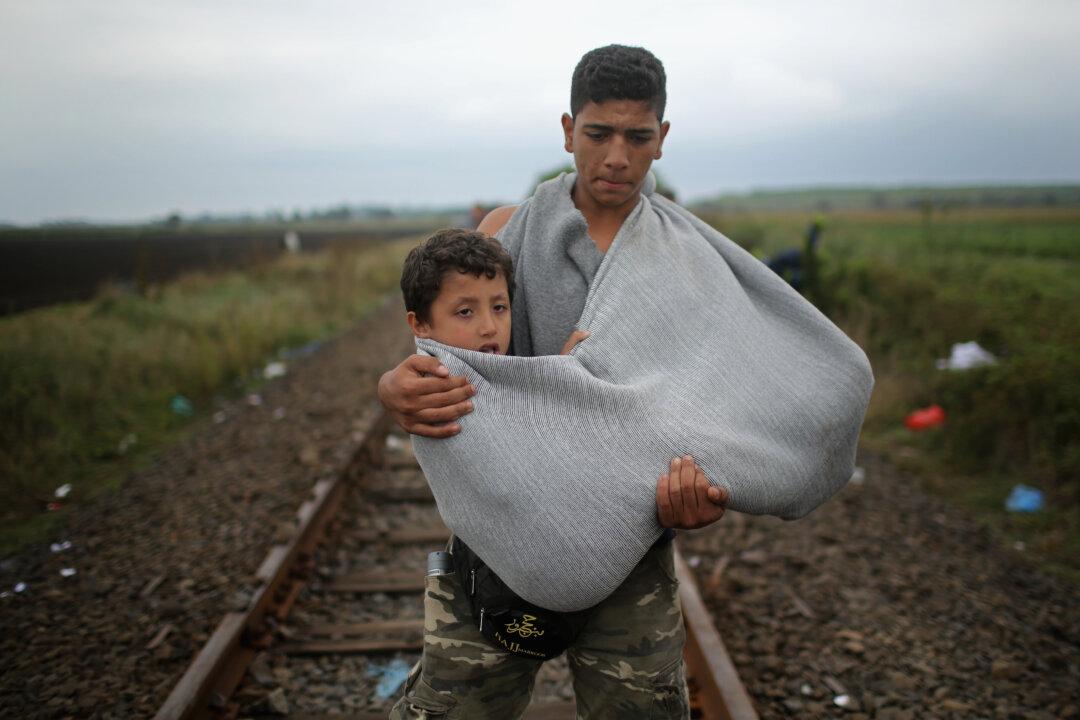VIENNA—The migrant crisis is “probably the biggest challenge for the European Union in its history,” Germany’s foreign minister declared Friday — but despite his warning, at least four Central European nations firmly rejected an EU proposal for mandatory refugee quotas.
As German Foreign Minister Frank-Walter Steinmeier spoke in Prague, a trickle of migrants marching toward Vienna swelled into a torrent Friday as thousands engulfed a major Austrian highway. Police briefly closed the A4 expressway to Vienna to vehicles because of the potential dangers posed by so many people on its shoulders.
Steinmeier had urged fellow EU nations to give more help to those seeking safety in Europe. Germany has already seen 450,000 migrants enter the country and is expecting at least 800,000 this year, the most in Europe.
“No single country can resolve such a challenge alone — we need European solidarity,” he told reporters in the Czech capital.
Despite Germany’s leading role in the 28-nation bloc, the minister failed to persuade his Czech, Slovak, Polish and Hungarian counterparts to drop their objections to a proposed EU-wide quota system to help migrants already in the EU’s most overburdened nations.






